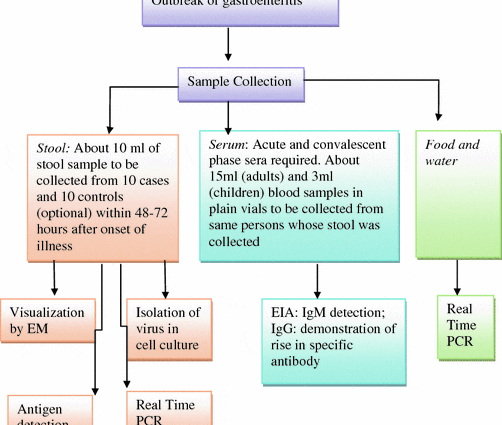ינהאַלט
גאַסטראָענטעריטיס - קאַמפּלאַמענטשי אַפּראָוטשיז
The following complementary approaches can help relieve symptoms, in addition to rehydration. Some also help speed up healing. Also consult the Diarrhea sheet for additional approaches that relieve this symptom. |
Gastroenteritis – Complementary approaches: understand everything in 2 min
Probiotics (for infectious gastroenteritis) |
פּסיליום |
Flax seeds, peppermint |
כינעזיש פאַרמאַקאָפּאָעיאַ |
פּראָביאָטיקס. Probiotics are useful microorganisms for our intestinal flora. Their consumption may reduce the duration and intensity of symptoms גאַסטראָענטעריטיס12. The effective strains in cases of acute gastroenteritis are lactobacilli (especially Lactobacillus caseii GG et Lactobacillus reuteri) and yeast סאַקשאַראָמיסעס boulardii12. In addition, probiotics can reduce the chances of getting an ינפעקטיאָוס שילשל (ראָטאַווירוס, י קאָלי, טוריסט), both in children and adults, as shown by two systematic reviews4,5 and two meta-analyzes of clinical trials6,7 published between 2001 and 2004. Their results demonstrate the usefulness of various strains of lactobacilli, in particular לאַקטאָבאַסיללוס גג (Lactobacillus rhamnosus ou Lactobacillus casei of the rhamnosus subspecies).
Finally, probiotics סאַקאַראַמאָיסעס באָלאַרדיי און אַ געמיש פון לאַקטאָבאַסיללוס אַסידאָפילוס און ביפידאָבאַקטעריום ביפידום appear to be effective in protecting against טראַוולער ס שילשל, or turista. This is what a meta-analysis of 2007 studies showed in 1213.
דאָוסאַדזש
Consult the Probiotics sheet.
פּסיליום (Plantago sp.). Psyllium can be helpful in reducing diarrhea. Indeed, as the mucilage it contains absorbs water in the intestine, it makes the stools more consistent. Since psyllium also slows down the emptying of the stomach and intestines, it allows the body to reabsorb more water. Positive results have been obtained from people with diarrhea caused by taking certain medicines or suffering fromfaecal incontinence.
דאָוסאַדזש
Take 10 g to 30 g per day of psyllium, in divided doses, with a large glass of water. Start with the smallest dose and increase it until you get the desired effect. The dose may need to be increased up to 40 g per day (4 doses of 10 g each).
וואָרנינגז. Regular intake of psyllium may require adjustment of diabetes treatment. In addition, the consumption of psyllium would reduce the absorption of lithium.
לינסיד (לימיטעד נוצן). Commission E and ESCOP recognize the use of flax seeds for short-term relief of irritation and inflammation of the mucous membranes of the stomach and intestines. The mucilage of flax seeds would form a protective layer on the intestinal mucosa.
דאָוסאַדזש
Soak 5 g to 10 g of crushed or ground seeds in 150 ml of lukewarm water for 20 to 30 minutes; strain and drink the liquid.
פעפער מינץ (Mentha piperita). ESCOP recognizes the use of peppermint leaves (by mouth) to relieve inflammation of the lining of the stomach and intestines. Traditionally, peppermint has been used to promote דיידזשעסטשאַן, relieve nausea and calm the pain.
דאָוסאַדזש
נעמען 3 צו 4 טעפּלעך פון ינפיוזשאַן פּער טאָג (ינפיוז, פֿאַר 10 מינוט, 1 לעפל פון דאַר בלעטער אין 150 מל פון בוילינג וואַסער).
כינעזיש פאַרמאַקאָפּאָעיאַ. It seems that the preparation באַאָ דזשי וואַן (נאָך טשיי) can help treat gastroenteritis. It would tone the digestive system and facilitate digestion. Use at the first sign of nausea and diarrhea.
The roots and leaves of isatis (איזאַטיס טינקטאָריאַ) are also used in Chinese medicine to relieve gastroenteritis. As for ginger, it is an antinausea. It is necessary to consult a practitioner trained in Traditional Chinese Medicine.










